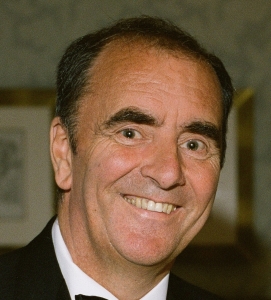UK Kidney Week 2021 – In conversation with David Coyle (NIHR Devices for Dignity Patient Partnership Lead)
As the UK Kidney Association prepares to host UK Kidney Week 2021, the biggest multi-disciplinary UK event for the renal community, we spoke with David Coyle about his role with NIHR Devices for Dignity MedTech Cooperative as Patient Partnership Lead and his work to facilitate and support patient and public participation in renal technology development.
A patient advocate for over 10 years, David is a member of the strategic PPI/E Reference Group for NIHR Evaluation Trials & Studies Coordinating Centre (NETSCC), an Executive Trustee of the National Kidney Federation (NKF) charity, and Vice Chair of the Manchester Royal Infirmary Kidney Patient Association, and a public reviewer for a number of NIHR funding streams.
David was also co-founder and former co-chair for the Kidney Patient Involvement Network (KPIN), a test site for the UK Standards for Public Involvement in Research.
“You work closely with many national organisations, what is your role at NIHR Devices for Dignity MedTech Cooperative?”
I work very closely with Lise Sproson (D4D Public & Patient Involvement & Engagement (PPIE) Lead) as an ambassador for PPIE in technology development – particularly within renal technologies – building and making connections in networks for meaningful collaboration.
And I’ve been very busy over the years!
During my time as part of the Devices for Dignity team I have project managed the successful SBRI Healthcare Kidney Care competition.
I am the co-applicant and PPIE lead for the Bioimpedance Spectroscopy to maintain Renal Output (BISTRO) trial, leading the establishment and training of a very active Patient Advisory Group (PAG), and co-applicant for the NIHR funded Inter-CEPT project researching the factors driving centre variation in uptake of home dialysis.
“What drives you to do the work you do?”
I worked for many years in the commercial world where if you don’t orientate your products or services based on your customers’ needs you won’t be successful. And this also applies to innovation and new product development for use in the NHS – if you don’t understand your customer how can you serve them well?
I’m a firm believer in “no decision about me, without me” and I passionately believe that quality collaboration between patients and clinicians leads to the best outcomes for all. I want partnerships to happen whether they are to drive technology innovation (Devices for Dignity’s focus), service improvement or drugs trials.
I’m driven to play my part in making sure patient and public involvement is embedded in collaborative research and accessible to all.
“What are your thoughts on what has been achieved regarding patient involvement in renal technology innovation – and where next for technology development?”
I think over the last 10 years we’ve made great advances in the broader representation of society in research and we’ve gained so much more in terms of understanding the patient experience. I think there’s more work to be done and progress to be made in appropriate patient & public involvement in policy decision making.
We’ve seen during the covid-19 pandemic that with creativity and imagination many things are possible – and that technology can be an enabler on a large-scale for populations or at a more detailed level for individuals.
Digital exclusion is a well-recognised issue and there has been real progress made in the renal technology sector to address this – I feel confident that people who cannot access or use digital tools for whatever reason will not be left behind if we continue to focus our efforts here.
Crucially, for technology to have the impact it has the potential to, there must be collaboration between users, be they patients, carers, clinicians or nurses. It’s what we need to make technology ‘sing’.
You are here: Home1 / News2 / Latest News3 / UK Kidney Week 2021 – In conversation with David Coyle (NIHR Devices f...
Contact Us
NIHR Devices for Dignity MedTech Co-operative
Sheffield Teaching Hospitals NHS
Foundation Trust
D33, Royal Hallamshire Hospital
Glossop Road
Sheffield
S10 2JF
0114 271 2159
Latest News
Latest Events
 Validating the Need for your Product: Involving Future Users (Clinicians, Patients, Families) Webinar13th April 2022 - 4:06 pm
Validating the Need for your Product: Involving Future Users (Clinicians, Patients, Families) Webinar13th April 2022 - 4:06 pm NIHR i4i Challenge Award in Real World Implementation – open for applications 4th November28th October 2021 - 11:32 am
NIHR i4i Challenge Award in Real World Implementation – open for applications 4th November28th October 2021 - 11:32 am NIHR SME Consultation Event – Friday 5th November20th October 2021 - 9:57 am
NIHR SME Consultation Event – Friday 5th November20th October 2021 - 9:57 am




